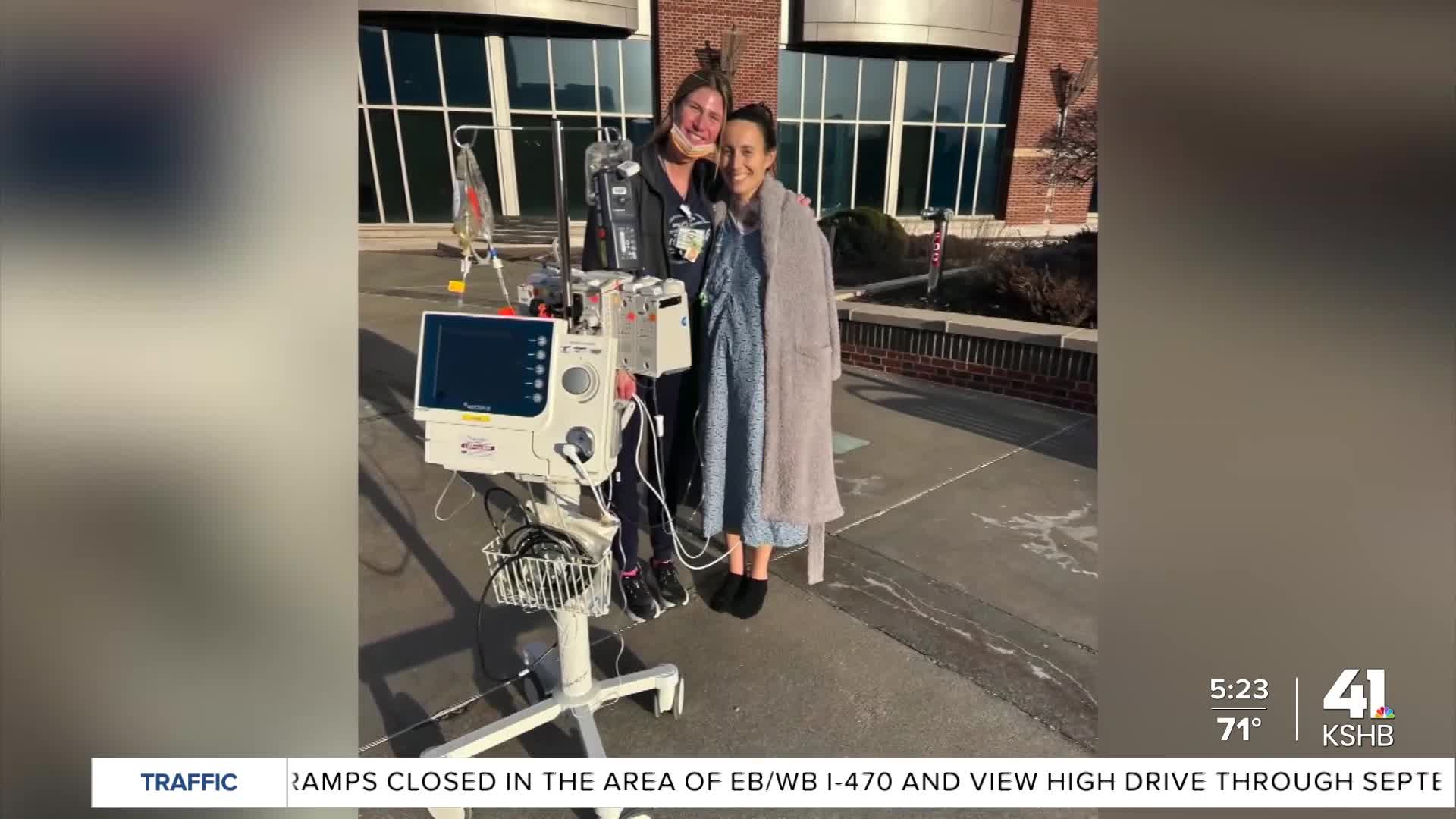KANSAS CITY, Mo. — Some friendships are formed in the most unexpected ways.
"She's the sister I never had, never knew I needed. The memories that we made here, I'm sure she would love to never remember, but I will never forget," Saint Luke's ICU nurse Molly Young said of Saint Luke's nurse practitioner Layne Strookman.
That friendship, those memories for Strookman and Young began inside Saint Luke's ICU when Strookman suffered a heart attack caused by a spontaneous coronary artery dissection, also known as SCAD.
"I'm a nurse practitioner, I've worked in cardiology, I know all the signs and symptoms," Strookman said. "And I still didn't believe that I was having a heart attack because I'm young, I'm healthy, right?"
Strookman, a 35-year-old wife and mother of three, had her first heart attack in February, six weeks post-partum with her third baby.
"I was taking my kids to school, [and] I started to become really sweaty," she said. "I had a lot of chest pressure; it was radiating down my arms, my hands went numb and I just knew something was wrong."

VOICE FOR EVERYONE | Share your voice with KSHB 41’s Rae Daniel
Her children's school nurse called 911.
"They noticed the tear in my artery, diagnosed me and they monitored me in the hospital for two days," Strookman said.
After two days in the hospital, it happened again: another heart attack.

"We went home. I was home for about 12 hours, and it was the middle of the night," she said. "I was nursing my baby, and the symptoms came right back. It was terrifying because I knew exactly what was happening, and it almost felt worse."
Strookman eventually had to have emergency triple bypass surgery. She spent 12 days in the ICU, where she later met Molly Young, her ICU nurse.
"I feel like we met in a way that I never could've expected and bonded just immediately from the start," Young said. "Her and her family were somebody I knew I was going to grow close with."
From ailing to advocating, Strookman wants to make sure others are aware of the dangers of SCAD.
"This is as serious as it gets with relation to coronary dissection," said Dr. Anna Grodzinsky, Strookman's physician.

Grodzinsky is a cardiologist with Saint Luke's Muriel I. Kauffman Women's Heart Center. She says SCAD can affect younger people, specifically younger women.
"Ninety percent of our patients are women," she said. "Some connective tissue conditions, sometimes hormonal changes around pregnancy and postpartum, sometimes stress or trigger events can be sort of a cause or a trigger for this to occur."
Strookman's biggest piece of advice is to speak up if something doesn't feel right. She also wants to make sure mental health is a priority.
"I did not think anything was wrong with me, and I did not want to go to the hospital initially," Strookman said. "So if me talking about it can help even one woman in the future recognize symptoms to go get help, and she can be there for her children growing up, that's all that matters to me."
Sometimes, out of crisis comes unexpected community.

"She is that momma bear for those three kids and her husband, and she's that rock, and that's what we want to keep her being, is that rock," Young said. "But I know that what I saw was a community can be that rock whenever she can't, and I'm going to be a part of it; I'm so blessed to be a part of it."
Strookman is back to work full-time as a nurse practitioner. Her family and Young's family plan to have Thanksgiving together this year, both saying they have a lot to be thankful for.
Strookman is also a part of Saint Luke's iSCAD registry. She met with Saint Luke's and a research physician from Australia to discuss SCAD research.
—





